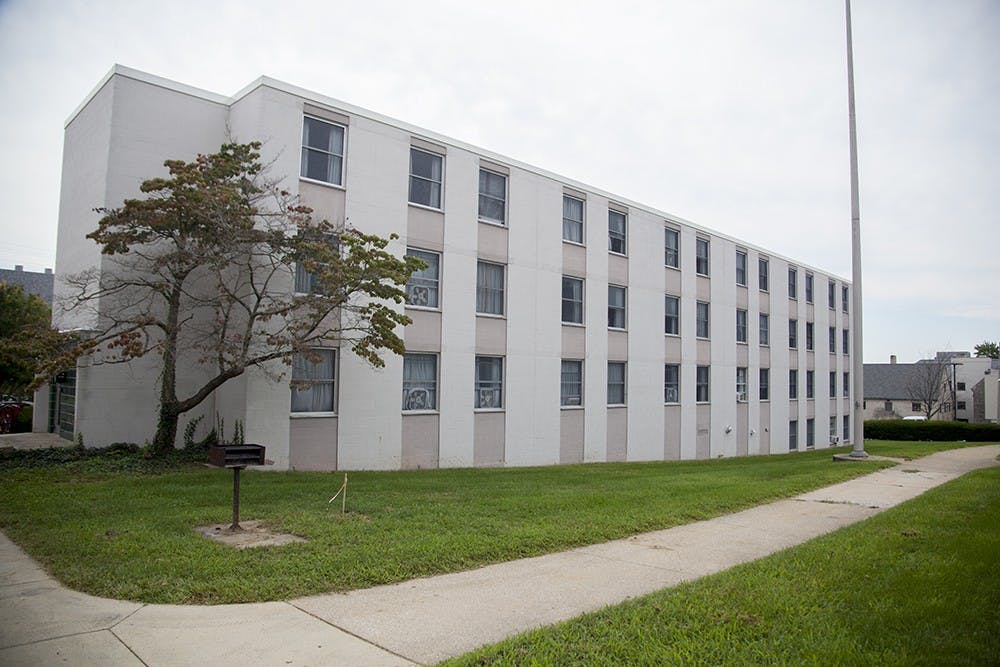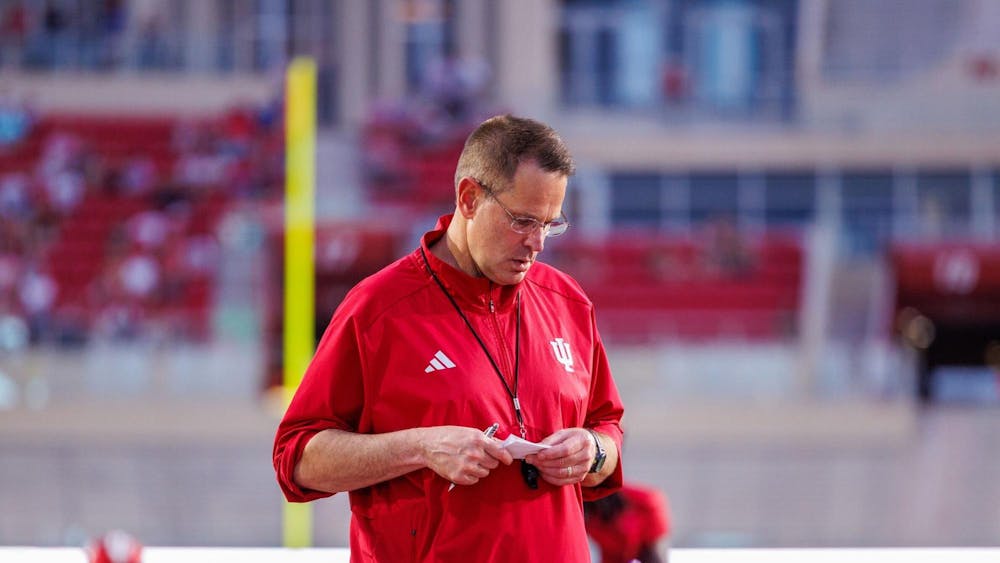The Hill, consisting of Brown and Greene Halls, is located near Woodlawn Avenue and 11th Street and has been a part of Collins since the 1990s, said professor Carl Ipsen, director of Collins.
“Those buildings will be demolished over time because they are in bad need of renovations,” said Vice President of Capital Planning and Facilities Thomas Morrison.
Though Morrison said ideas are being discussed, no plans have been confirmed.
These changes will be part of a campus-wide upgrading of all the housing facilities within the next few years.
“That’s the ebb and the flow that takes place on a campus as large as this every year,” Morrison said. “It’s a puzzle sometimes.”
Ipsen said the Hill has facilities to house 120 students as well as the clubhouse, a series of art studios, lounges, a dark room, a cinema and other related activities.
“When I took this position, I knew it would happen eventually,” he said of the start of his four-year stay as director of the residence hall.
Morrison said he feels it is important not to disrupt the students unnecessarily during the school year.
To the president of Collins Jack Hreha, the Hill is a place unique to Collins and a place for students to hang out together.
But the post World War II cinder block building wasn’t meant to be a permanent structure on campus, Ipsen said.
This isn’t the first time the Hill has been threatened to close, he said. In the 1990s, the Hill, housing many upperclassmen at the time, was set to be closed. This decision caused students to stage “Save the Hill” protests that were successful.
It’s a really emotional place for alumni, he said.
“There’s not that much desire for the Hill,” Ipsen said, explaining why protesters wouldn’t be saving the Hill this time.
Originally, Ipsen said he was told the Hill would be taken down last summer, but they ended up getting a reprieve that postponed demolition to this coming summer.
“We are working on the planning for a new informatics building,” Morrison said.
Informatics is discussing plans and architecture, as well as how to raise the funds to develop a new building, he said.
The School of Informatics and Computing wants more space and has the funds to build a new building on the location, Ipsen said.
“We’re going to at least temporarily lose that space,” Ipsen said of the 120 beds out of 540 housed by Collins.
Morrison said people are currently working on relocating facilities currently housed in the Hill.
Along with the moving of beds and the clubhouse into Hillcrest, Morrison said the fine arts studios available in the Hill might end up being housed inside the old IU Press ?building.
Ipsen said the loss of living space should only last about a year. After that, some of the living quarters should be replaced.
Morrison said this loss of housing was accounted for with additional beds in Rose Hall and Union Street Apartments.
“Our goal with the housing system is to keep the number of beds constant,” he said.
The average number of available beds annually is 12,000, Morrison said.
Despite this loss of housing, nobody will be asked to not come back to Collins, Ipsen said.
Instead, there may just be a waitlist to live in Collins next year, something the residence hall has experienced in years past due in part to housing supply fluctuations, he said.
“Students are living in them, but our numbers are lower,” Hreha said.
About six years ago, lounges in Collins had to be converted into makeshift dorms to accommodate all the students living in the residence hall, Ipsen said.
Since then, there have been more empty beds than Ipsen said he wanted to see, ? including a few floors on the Hill.
“In some ways, it will make the transition easier,” he said.
Ipsen said this year, 450 students are living in Collins out of a possible 540. Returning students will be offered the first opportunity to move back into Collins next year.
“It’s true that we haven’t filled up in the last couple years,” Ipsen said.
Ipsen said this did not affect or induce Residential Programs and Services decision to close the Hill.
“There’s no causal link,” he said.
In terms of moving the clubhouse space, Ipsen said all of the facilities and equipment will be moved into the Hillcrest apartments on 10th Collins.
He said the Department of Psychology is currently housed partially in the north wing of Hillcrest, but they will be moved out to make room for the clubhouse equipment on the first floor and more living space on the upper floors that are currently psychology offices.
Morrison said the Department of Psychology may have a new space already, though nothing has been confirmed at this time.
Ipsen said residents have been discussing what they want Hillcrest to be like for students and will have to have suggestions submitted to RPS by the end of September.
“We’re actually in the process of gathering more student input,” Hreha said.
Morrison said space planners have been meeting with students to talk about Hillcrest’s new makeup. Students, faculty and other people who will be affected by these changes and new facilities are often asked for their opinions.
Hreha said the styles the students are considering are very different from the current, more closed off spaces inside the Hill.
“It looks more like an open area that is multipurposed,” he said of the latest student proposals.
He said the close community of Collins is being involved in the changes and trying to leave something that future residents make use of and enjoy.
“It shows the brightness and involvement of students here,” Hreha said.
Another loss attached to the closing of the Hill was the possibility of gender neutral bathrooms in Collins, Ipsen said.
Though there had been talks of making gender neutral bathrooms in the Hill, insufficient demand kept the project from being implemented, he said.
At this point, Smith Hall of Collins main quad wants to get gender neutral bathrooms, but it is unlikely this will become policy, Hreha said.
Collins may be the most tolerant and accepting place on campus for transgender students, Ipsen said, but because the building dates back to the 1930s as an all male facility, trying to change the bathroom system would be too complicated.
While Ipsen said he would have liked to see Collins get a new building entirely, he knew that wasn’t likely to happen and instead is hopeful for a positive and smooth transition.
“I think it will be good for Collins,” he said.






